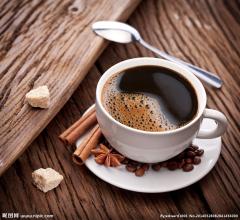Light weight, aromatic, pure, slightly sour Salvadoran Parkmara coffee
If you want to give an appropriate description of the flavor characteristics of Salvadoran coffee, it should be nothing more than "moderate, slightly lighter viscosity, pleasing softness and sweetness, coupled with attractive fruit aromas".
When tasting El Salvador, you can put the right amount of sugar into the coffee, add ice, stir it well, and add fresh milk according to your preference, so you can slowly enjoy the unique, cool and mellow El Salvador. Let this American specialty coffee bring you a new round of taste. El Salvador's Cuspa region is rich in coffee beans, which are lighter in weight, fragrant, pure and slightly sour. Like Guatemala and Costa Rica, Salvadoran coffee is graded according to altitude, and the higher the altitude, the better the coffee. The best brand is Pip, whose quality has been recognized by the American Organic Certification Society. Another rare coffee is Parkmara Coffee, a hybrid of Parks Coffee and Marago Rippi Coffee, best produced in western El Salvador, adjacent to Santa Ana, which is close to the border with Guatemala. Parkmara coffee beans are full-grained, but not very fragrant. Ervado is located in the northwest of Central America, bordering the Pacific Ocean to the south. It is one of the cradles of ancient Mayan civilization. The nearby volcanoes, plateaus, lakes and bathing beaches along the Pacific coast are all very pleasant. But El Salvador is most famous for its unique, mild-tasting coffee.
El Salvador's coffee taste is extremely balanced, and its exports account for 40% of the country's exports. The best quality coffee is exported from January to March each year, and 35% of the extra hard beans are exported to Germany.
In the early 1990s, the national economy of El Salvador was greatly damaged or even destroyed as a result of the war, resulting in a drop in coffee production from 3.5 million bags in early 1970 to 2.5 million bags in 1990-1991.

Important Notice :
前街咖啡 FrontStreet Coffee has moved to new addredd:
FrontStreet Coffee Address: 315,Donghua East Road,GuangZhou
Tel:020 38364473
- Prev

Tarasu, a valley in the central mountains of Costa Rica's coffee-producing region.
Excellent Costa Rican coffee is called extra hard beans, and this kind of coffee can grow at an altitude of more than 1500 meters. Altitude has always been a problem for coffee growers. The higher the altitude, the better the coffee beans, not only because the higher altitude can increase the acidity of the coffee beans and thus increase the flavor, but also because the night temperature at the higher altitude is lower, which can make the trees grow slowly.
- Next

Honduran Coffee beans with large granule shape introduce San Juan Xido region
The granules of coffee beans in Honduras are large in shape, uniform in size and glossy in color. In order to facilitate harvesting, farmers will prune the coffee trees to no more than 150 centimeters, because if they grow too high, they have to set up ladders to pick, which is not only time-consuming, but also may damage the trees by bending branches. As the ripening period of each fruit of the coffee bean is different, it is necessary to keep the coffee bean in good condition.
Related
- Does Rose Summer choose Blue, Green or Red? Detailed explanation of Rose Summer Coffee plots and Classification in Panamanian Jade Manor
- What is the difference between the origin, producing area, processing plant, cooperative and manor of coffee beans?
- How fine does the espresso powder fit? how to grind the espresso?
- Sca coffee roasting degree color card coffee roasting degree 8 roasting color values what do you mean?
- The practice of lattes: how to make lattes at home
- Introduction to Indonesian Fine Coffee beans-- Java Coffee producing area of Indonesian Arabica Coffee
- How much will the flavor of light and medium roasted rose summer be expressed? What baking level is rose summer suitable for?
- Introduction to the characteristics of washing, sun-drying or wet-planing coffee commonly used in Mantenin, Indonesia
- Price characteristics of Arabica Coffee Bean Starbucks introduction to Manning Coffee Bean Taste producing area Variety Manor
- What is the authentic Yega flavor? What are the flavor characteristics of the really excellent Yejasuffi coffee beans?

